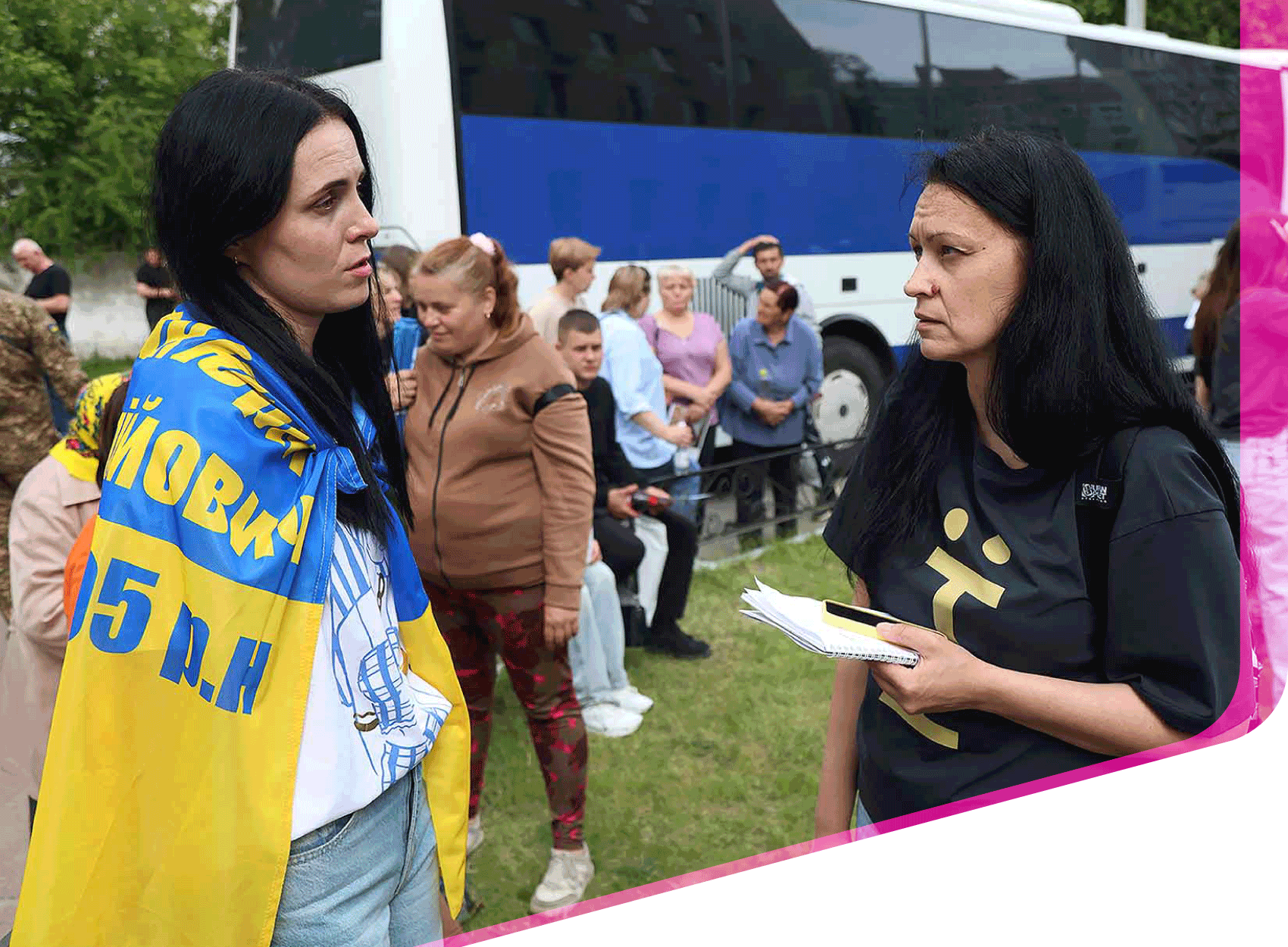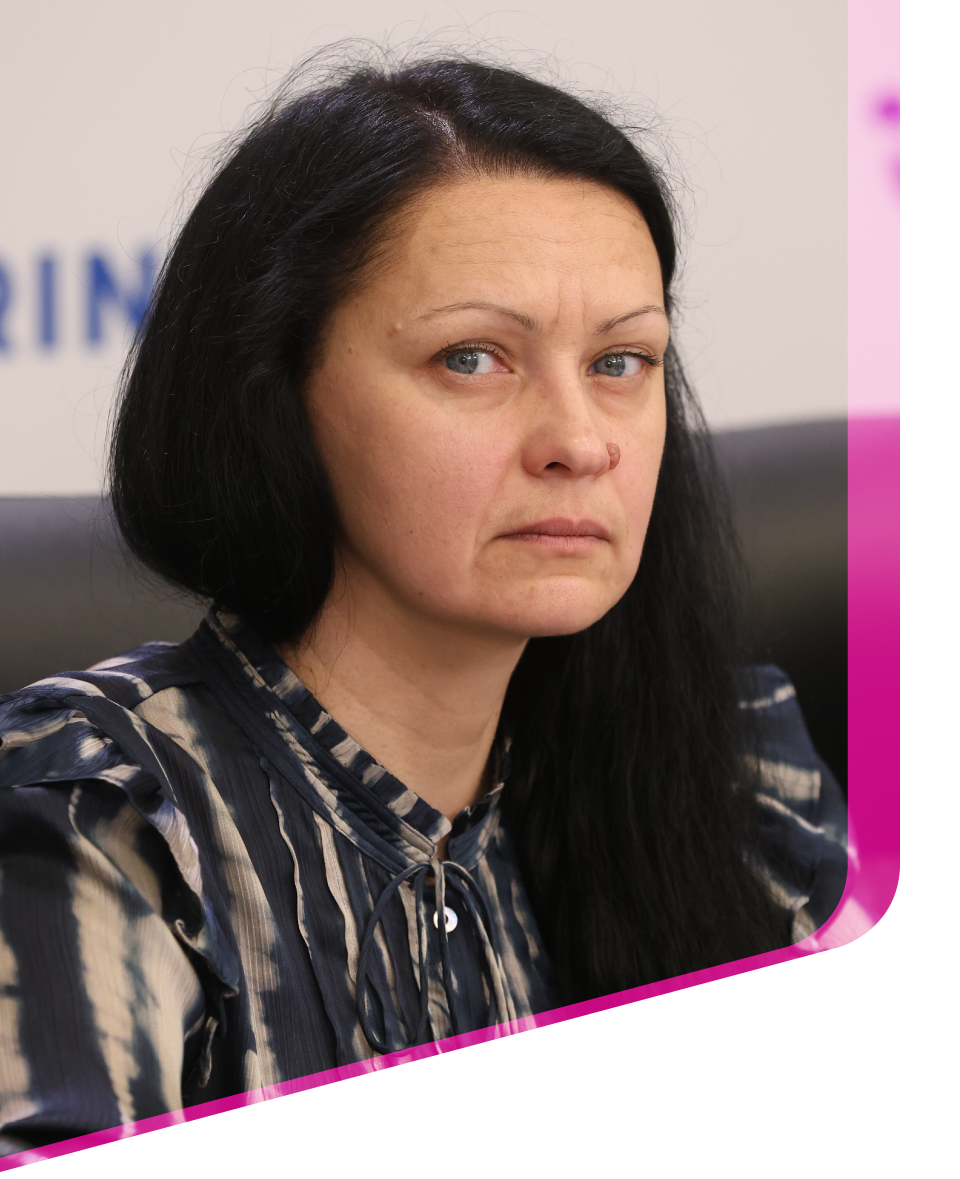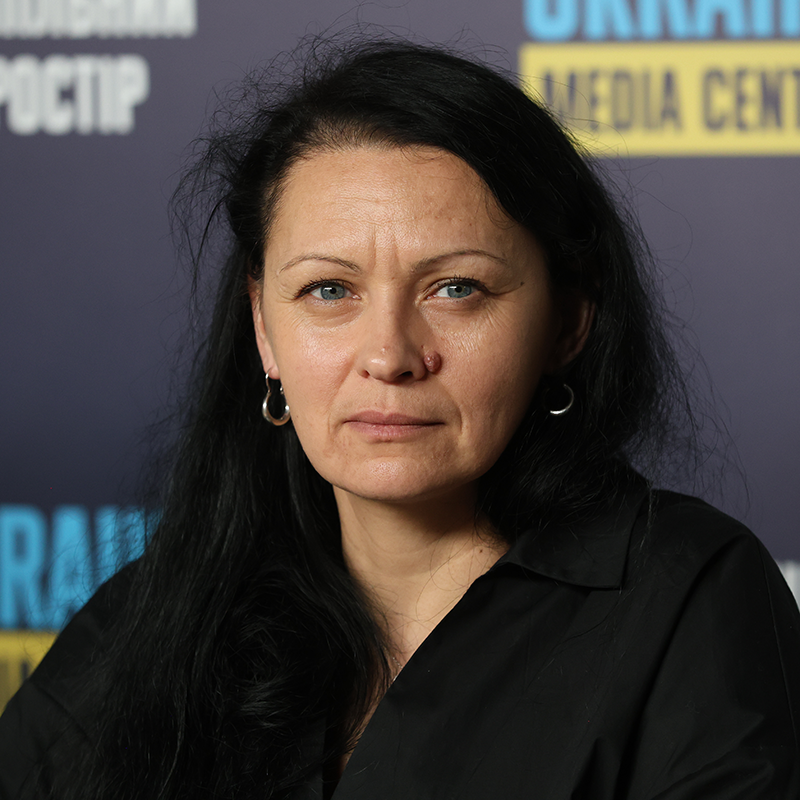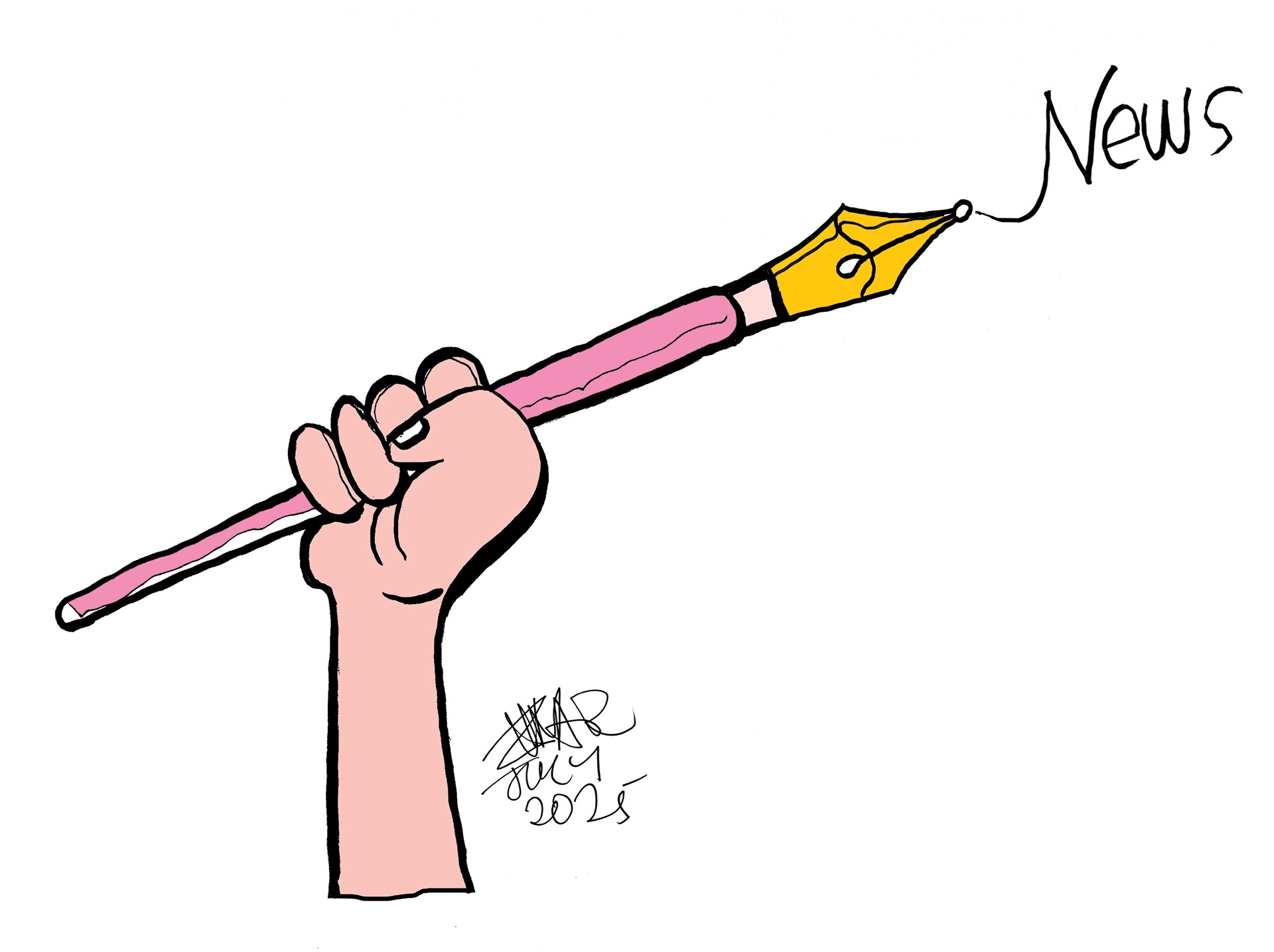
Ukraine
Ukraine
Ukraine
Tetiana Katrychenko
Tetiana Katrychenko
Tetiana Katrychenko
Author and activist with the Media Initiative for Human Rights (MIHR)
Author and activist with the Media Initiative for Human Rights (MIHR)
Author and activist with the Media Initiative for Human Rights (MIHR)

Ukraine
Tetiana Katrychenko
Author and activist with the Media Initiative for Human Rights (MIHR)
“We must maintain a critical perspective; speak up about problems, report violations.“

VITA
Tetiana Katrychenko is an alumna of the Institute of Journalism at the Taras Shevchenko National University of Kyiv, who previously worked for the Glavred magazine and the STB television network. She has collaborated with the newspapers Den, Ukrainska Pravda, and Focus magazine. Among others, she has been covering the topic of illegally detained Ukrainian citizens on the territory of the Autonomous Republic of Crimea and Donbas since 2015. She joined efforts to organize advocacy campaigns that promoted the release of illegally detained persons. She’s the author of the reports Military and civilian detainees in Donbas: searching for the efficient mechanism of release and Female face of Donbas hostages. She is a member of the Interdepartmental Commission for consideration of issues related to the recognition of persons deprived of their freedom as a result of armed aggression against Ukraine and the implementation of measures aimed at their social protection.
The Media Initiative for Human Rights (MIHR) investigates and documents war crimes and other human rights violations committed by Russia in Ukraine. What outcomes have you been able to achieve so far, and how do you evaluate the impact of your work?
Human rights work is a process. We understand that we won’t be able to bring the top leadership of the Russian Federation and all direct perpetrators to justice tomorrow or the day after. Yet, as a leading organization in this field, this remains one of MIHR's primary goals. We are a co-founder of the Civil Society Coalition Ukraine 5 AM, established to protect victims of aggression. At the beginning of the invasion, our primary focus was on documenting crimes and informing the world about the war. Later, our analytical and advocacy work became central. Over the past three years, we have produced dozens of analytical reports on the detention of civilians, the treatment of POWs, monitoring court hearings in Ukraine, and supporting the families of missing persons. We have also organized events at OSCE headquarters, the European Parliament, the UN, and the UN Human Rights Council. We co-organized the international conference Crimea Global: Understanding Ukraine through the South. As a result, we were honored to receive the Dutch government's Human Rights Tulip Award and a special recognition from the OSCE for our efforts in defending democracy. I always say “we” because we can only succeed as a team. Our team is our greatest asset.
Your professional path is a synthesis of journalism and human rights activism. How do you manage to combine these roles in your civic work and transform from a journalistic interest to deep human rights work?
I have loved journalism since my student days. It became my life – dynamic, insightful, and endlessly deep. For a long time, I successfully combined my work at one of the country’s leading socio-political weeklies with human rights advocacy. At first, I probably didn’t fully realize that my desire to help and support others was, in fact, part of a broader effort to ensure people’s ability to exercise their rights and prevent violations. However, at some point, it became clear that observing from the sidelines and writing reports were no longer enough. I had to take action and fight for others as if they were my own. Last autumn, I made the difficult decision to step away from the newsroom to devote more time to human rights work. These days, I only write occasionally for the MIHR website to stay in shape.
Is there a personal story, perhaps of a person or family, that has had a profound impact on you? A story that has become a symbol of why it is worth fighting for justice, even when it is difficult or seems hopeless?
I have a friend, Bohdan. We first “met” in absentia, about a year after he was captured near Donetsk airport while defending Ukraine. At first, I got to know his wife and parents – I was working on a story. Then we stayed in touch. By the time Bohdan was released after five years in captivity, we already knew a lot about each other. His wife used to mention me in her letters to him, calling me “the journalist.” Nevertheless, what struck me the most was that after five years, Bohdan didn’t break. He didn’t fall into depression or give in to despair – and neither did his wife. Today, she’s part of the MIHR team. Her difficult personal experience helps her understand others more deeply and work with even greater impact.

Human rights activities in times of war often involve serious risks. What are the challenges faced by civil society organisations working in such conditions?
There are different kinds of risks. Some are to our lives – we work in de-occupied settlements, often right after liberation, or near the front line. I always keep bulletproof vests and a helmet in the trunk of my car. There’s also the challenge of psychological burnout. The human pain we encounter can be overwhelming. Sometimes it feels like you are suffocating. What helps most, I think, is humor. Becoming cynical is possible, too. Perhaps the greatest risk of all is not being heard. Civil society organizations are often partners to the state, especially those documenting international crimes. The state simply can’t manage this alone. However, we cannot become part of the government, nor can we function as a service provider for it. We must maintain a critical perspective; speak up about problems, report violations, regardless of the partnership. And, where the state, in wartime, doesn’t always have time to develop solutions, we try to offer our own. For example, the Russian Federation has abducted thousands of civilians from occupied territories and thrown them into prison, held incommunicado. There is no existing mechanism for getting them out. MIHR put forward a proposal. The state – the President’s Office, the Ombudsperson’s Office, the Coordination Headquarters, and others – listened. We’re now working together on an action plan and concrete steps.
Have you or your team faced pressure, intimidation, or other forms of obstruction because of your work?
War is about emotions, often painful, and full of frustration. I’ve heard negative remarks, though not direct threats. The only real threats or “warnings” I’ve received were connected to my work as a journalist – uncovering inconvenient facts, rather than human rights work.
In the face of Russia's horrific aggression, torture, enforced disappearances, and inhumane treatment of Ukrainian civilians by the Russian army, your advocacy is essential. What support do you expect from international policymakers?
Our audience includes the international community. On June 16, the European Parliament held a debate on a draft resolution “The human cost of Russia’s war against Ukraine and the urgent need to end Russian aggression: the situation of illegally detained civilians and prisoners of war, and the continued bombing of civilians”. This document condemns Russia’s mass arbitrary detentions, torture, fabricated charges, and inhumane conditions of confinement. During the debate, several MEPs – including Petras Auštrevičius of Lithuania and Marie-Agnes Strack-Zimmermann of Germany – mentioned specific cases, such as the Ukrainian journalist Dmytro Khyliuk and Kateryna Korovina, a civilian from the Luhansk region, who was detained for donating to volunteer groups supporting the military. This is a form of victory. Victory in terms of applying real pressure on the Russian Federation. Now, accusations against it and demands to release Ukrainians are heard again from the tribune of the European Parliament.
Russia prefers to commit crimes behind closed doors. There hasn’t been access for international monitoring missions or humanitarian organizations in this country for a long time. However, when the doors are forced to open, it becomes harder to continue committing violence in silence. If that pressure continues to grow – and we are counting on the international community and political leaders to ensure it does - Russia may at least partially halt its violations of human rights. It may begin to release some of the civilians it has abducted and is currently holding hostage – people we are actively advocating for. We also expect to see a firm belief that justice must prevail. The perpetrators – whether in Russia or its allies like North Korea and Belarus – must be held accountable. Europe must remain steadfast in this: strengthening sanctions and seizing assets.
Ukraine
